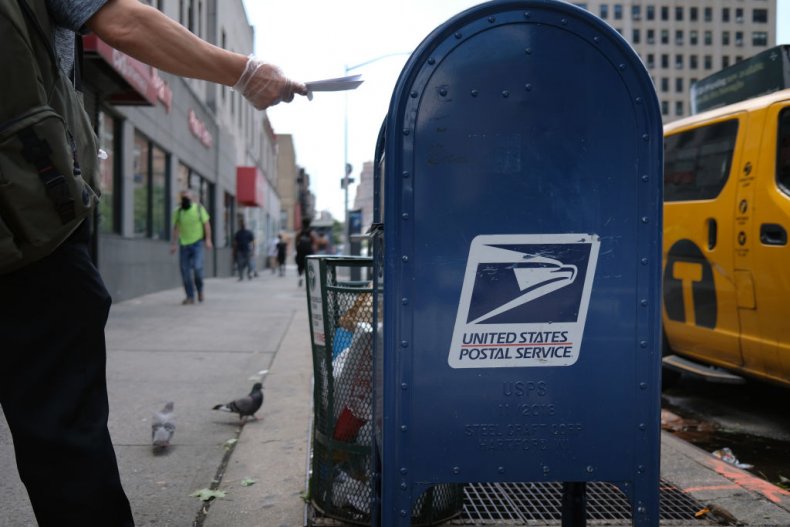With the appointment of new Postmaster General Louis DeJoy, a businessman who has donated millions of dollars to Republicans and President Donald Trump’s campaign, many have once again raised concerns that an effort to privatize the United States Postal Service is underway.
Although there is not a stated governmental effort to privatize the United States Postal Service, some lawmakers in the U.S.—including Trump—have previously suggested that privatization would be a good option for the cash-strapped USPS as well. DeJoy’s actions since taking over in mid-June, which are aimed at cutting costs for the federal agency that is already more than $160 billion in debt, have fueled concerns that he aims to prepare the USPS for privatization. DeJoy has stopped paying overtime to clerks and mail carriers, which has already caused mail delays.
“We are already seeing the impacts of their sabotage. Mail is delayed. I am not exaggerating when I say this is a life-and-death situation. The Post Office is delivering medicine to millions of Americans during a pandemic. It delivers Social Security checks to seniors who rely on those benefits to survive,” former Democratic presidential hopeful Senator Bernie Sanders, a Vermont independent, told Newsweek in an email.
Mario Tama/Getty
Get your unlimited Newsweek trial >
But the White House dismissed concerns that an effort to privatize the USPS is underway. An Trump administration spokesperson told Newsweek that “recent reforms being made by the Postmaster General, such as eliminating unnecessary overtime expenses, are part of the administration’s effort to improve USPS’s finances without privatizing the postal system.”
Dr. R. Richard Geddes, a professor at the Cornell Institute for Public Affairs, told Newsweek that he didn’t see DeJoy’s recent decisions as politically motivated, but as necessary business decisions to cut costs for the heavily indebted federal agency. Geddes said the USPS has become “pretty politicized” in recent years, but suggested that privatization could be a good option, albeit difficult. He emphasized that peer nations in Europe, including the U.K., Germany and the Netherlands had already done so successfully.
“They are a lot more efficient than we are [in Europe],” Geddes said. He said “the concept of privatization would work fine in the United States,” but pointed to legal and financial issues making it politically perilous. The mandate for the USPS is laid out in the Constitution, which grants Congress the power “to establish Post Offices and post Roads.”
Get your unlimited Newsweek trial >
“Enshrined in the Constitution, the Postal Service provides universal service, six days a week, to every household in America, no matter how small or how remote in normal times and in times of crisis,” Sanders said. He argued that privatization would “be catastrophic for communities across the country and spell an end to one of the few American institutions that serves everyone.”
A fall 2019 report by the Cato Institute, a Libertarian think tank located in Washington, D.C., cited the privatizations of mail services in Europe as an example that the U.S. could follow. It noted that Germany’s mail service, which began privatizing in 1995, has been described as “the most admired postal operator in the world.”
In the U.K., the Royal Mail service, which was established in the 16th century, became fully private in 2015. But while the decision has led to better finances and higher revenue, a majority of British citizens believe it should be returned to state control. As of December 2019, nearly 70 percent of people in the U.K. believed the Royal Mail should be returned to public ownership, while just 18 percent said they supported privatization, according to YouGov.
“People in the UK have seen the impacts of privatization and want it back into the hands of the public: 69 percent of people in the U.K. want the Royal Mail in public ownership,” Sanders said. “The U.K. would save £171 million [$222.7 million] a year by bringing Royal Mail back into public ownership,” he added, pointing to a study from the University of Greenwich.

Spencer Platt/Getty
Sanders, along with other prominent Democratic lawmakers and unions representing postal workers have long pushed back against privatization efforts from the right. They have raised concerns about workers’ pensions, and have argued that the USPS should be viewed as public service not a for-profit entity.
“Postal workers provide an absolutely essential service to everyone in the country – no matter how rich or poor we are or where we live,” American Postal Workers Union President Mark Dimondstein said in an April statement. Dimondstein accused Trump administration officials of undermining the postal service “so private delivery companies can profit.”
But Geddes told Newsweek that many of the postal services problems come from it being under congressional control. He said this ties the hands of the postmaster general, and prevents her or him from making decisions that other businesses would make to cut costs and improve service.
Dr. Steve Hutkins, an associate professor of literature at New York University who administers the website Save the Post Office, disagreed. He told Newsweek that privatization would actually harm service as well as postal workers.
“I’m opposed to it because it would lead to the closing of thousands of post offices because they don’t bring in enough revenue,” Hutkins said. He argued that privatization would lead to “higher postal rates,” slower deliveries and “low paid workers who get few benefits.”
Source link



